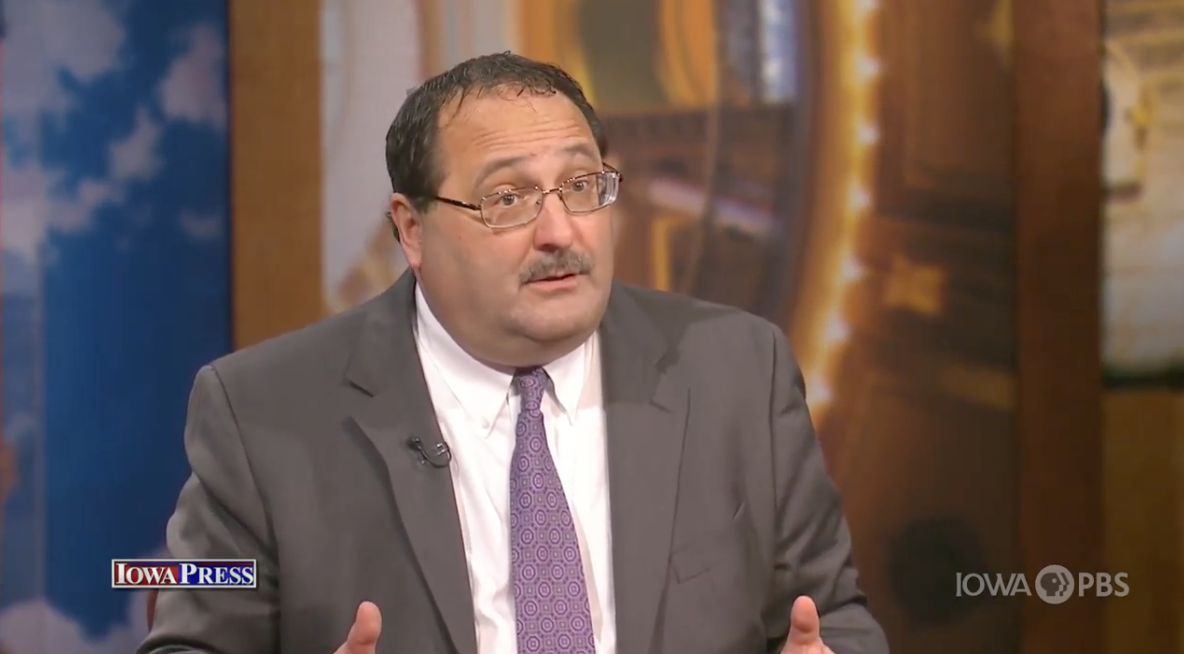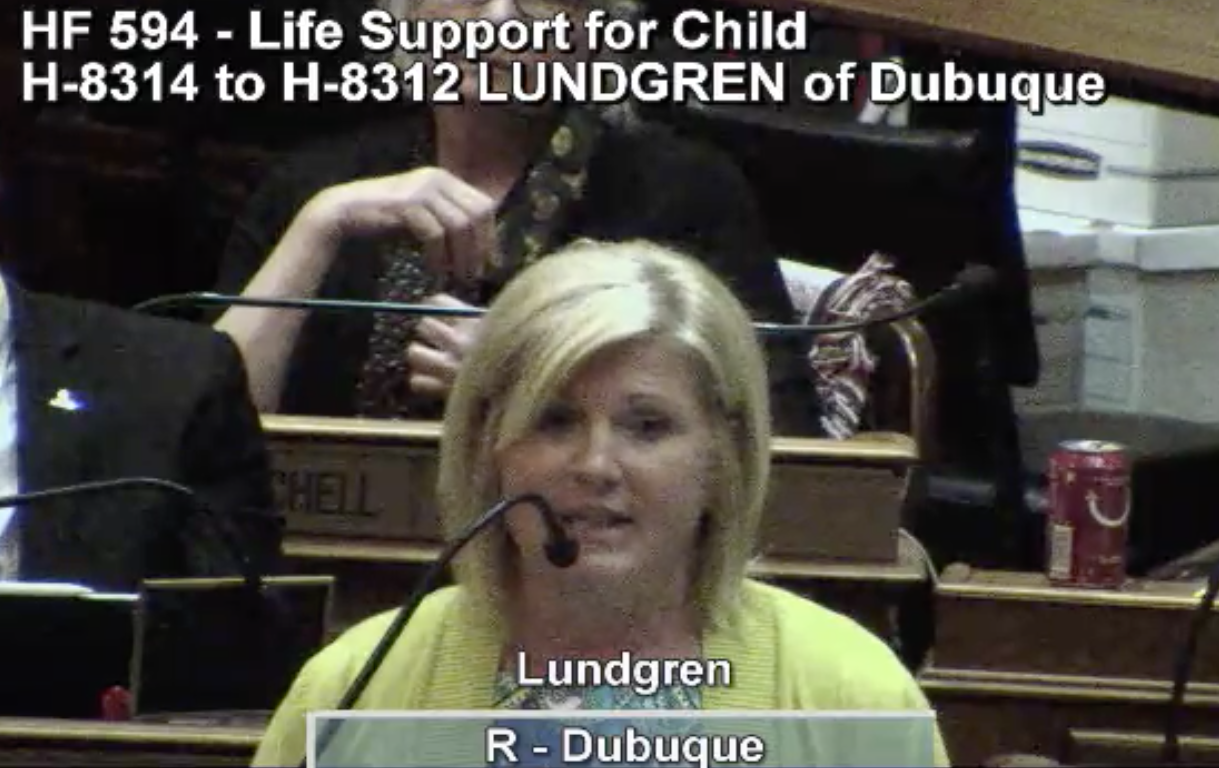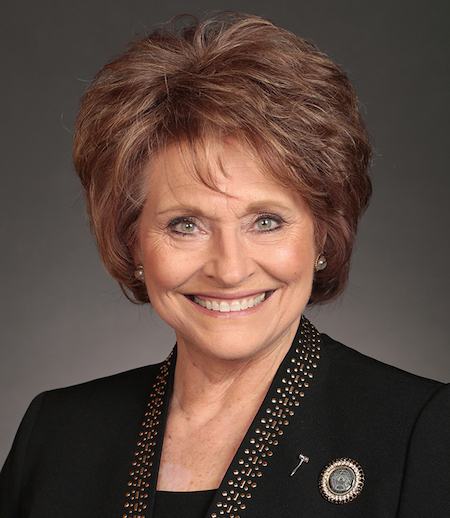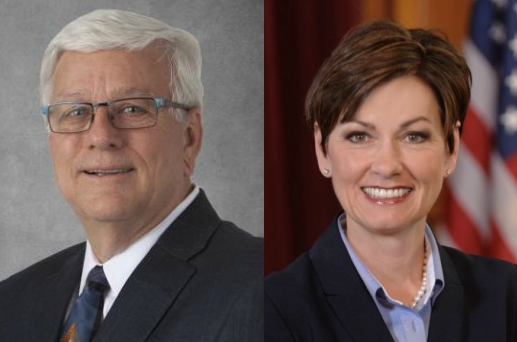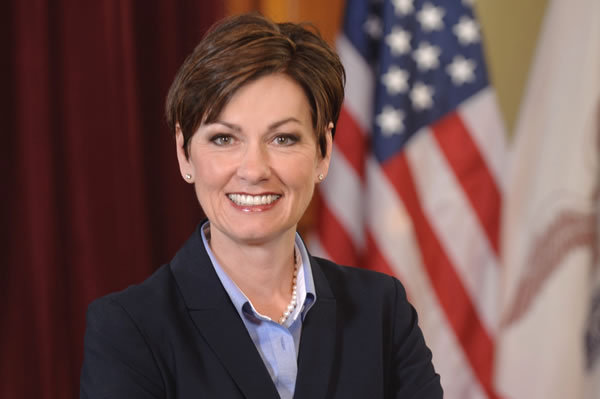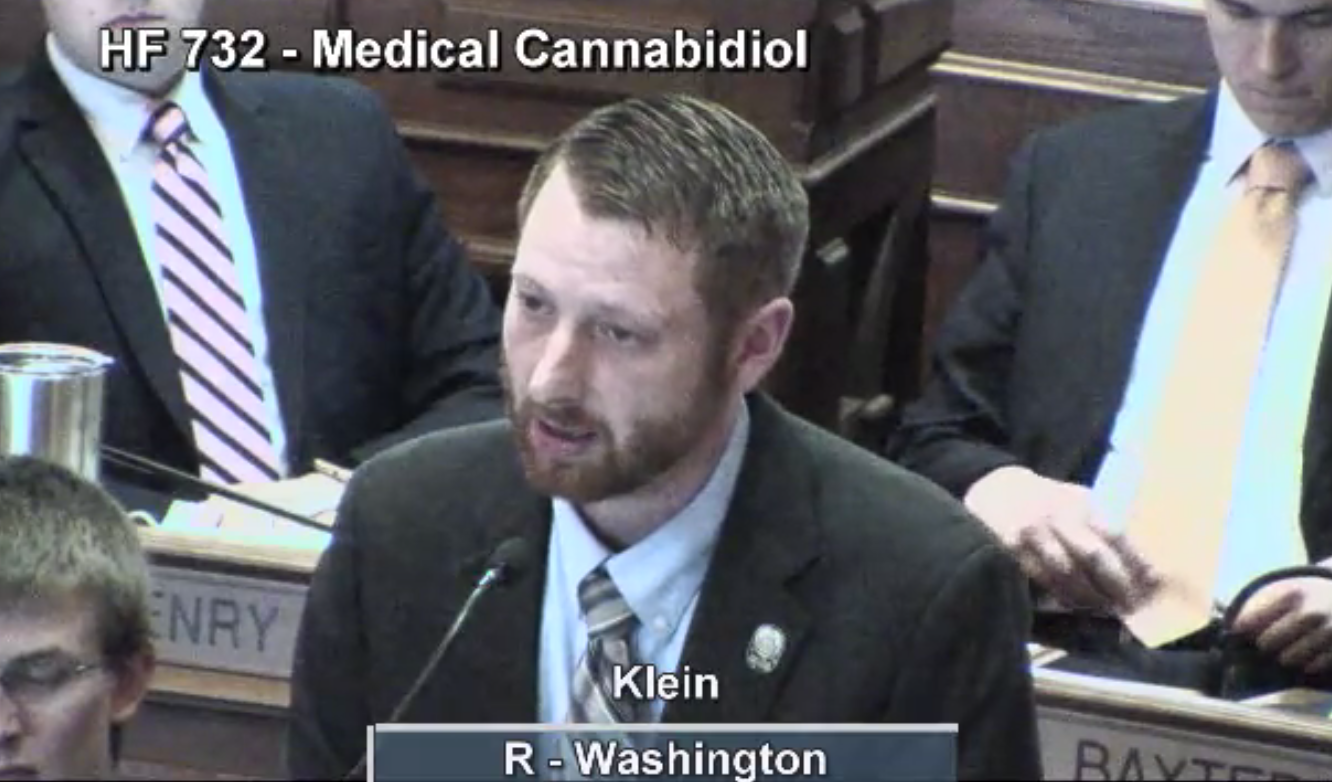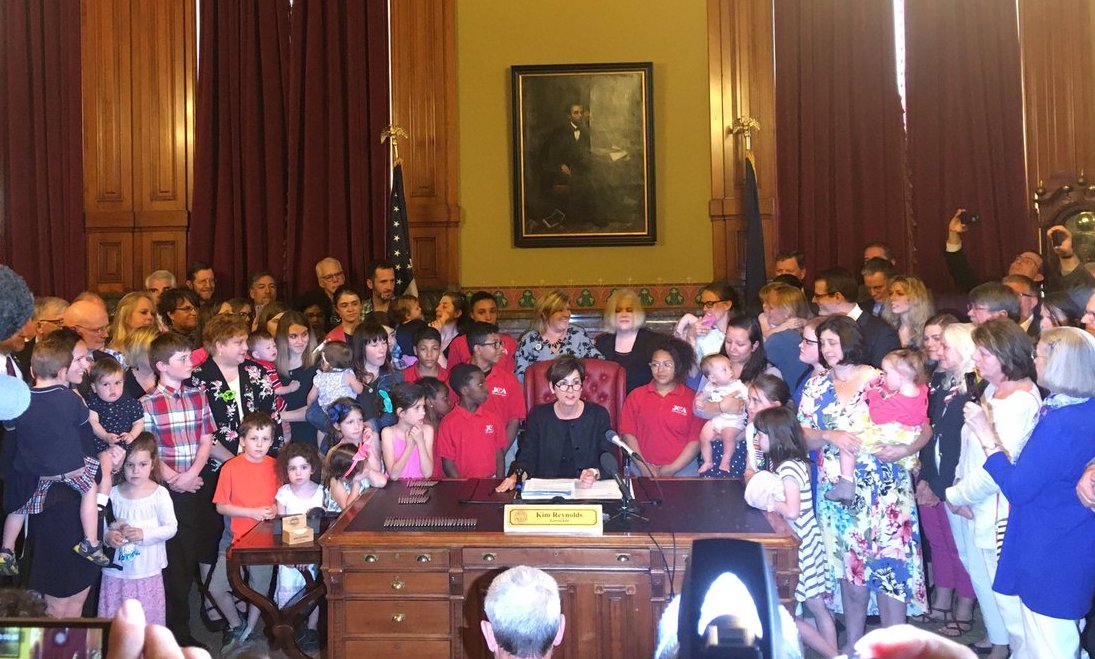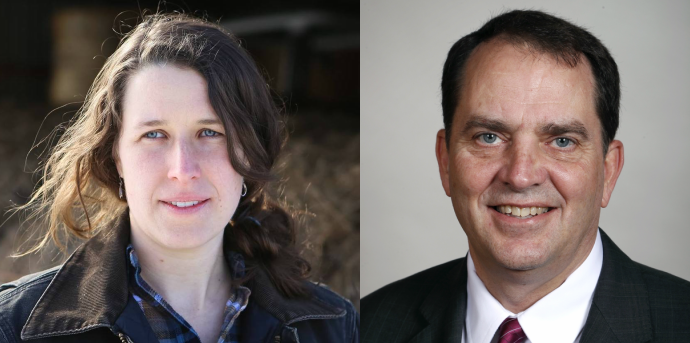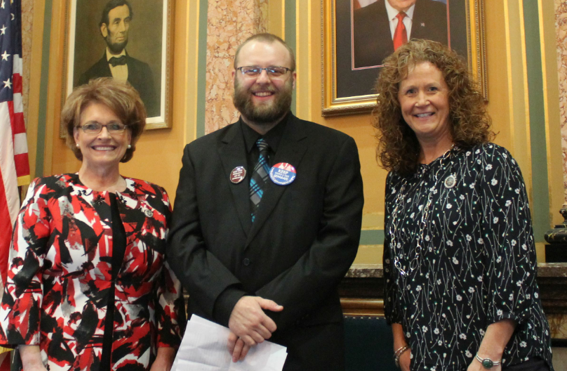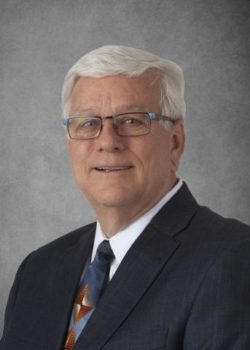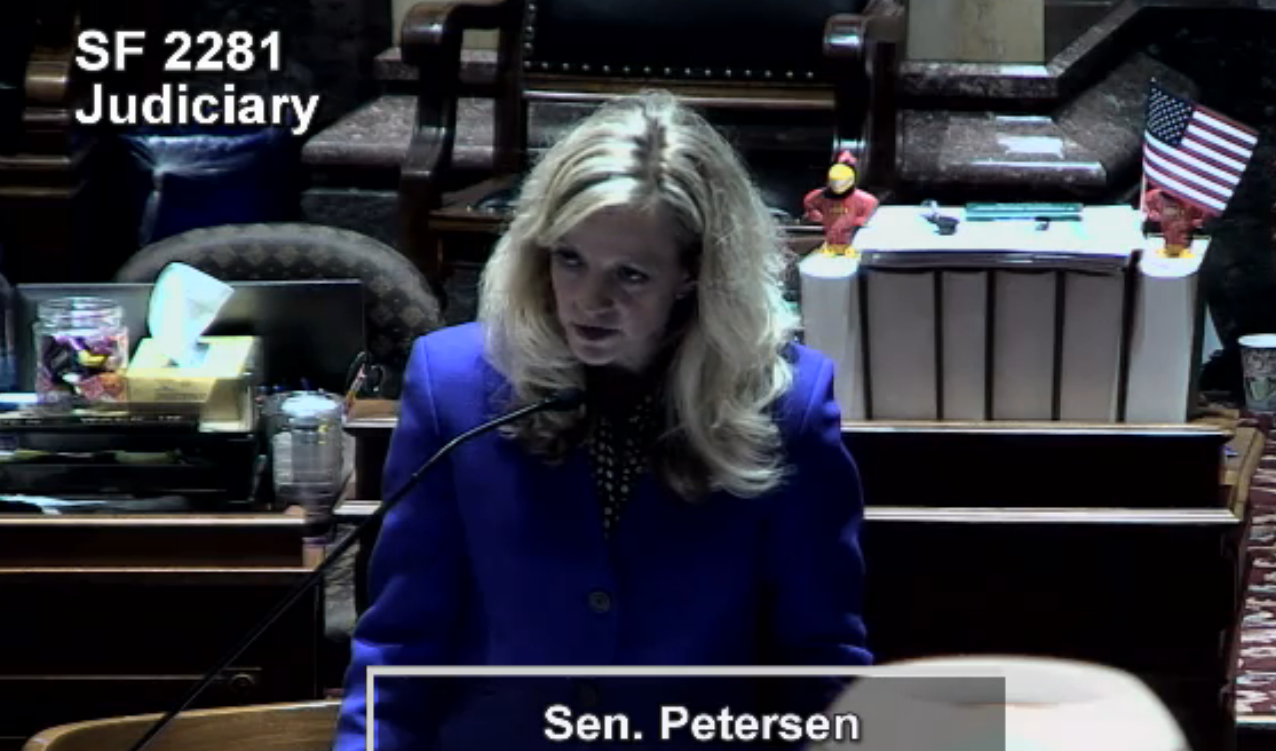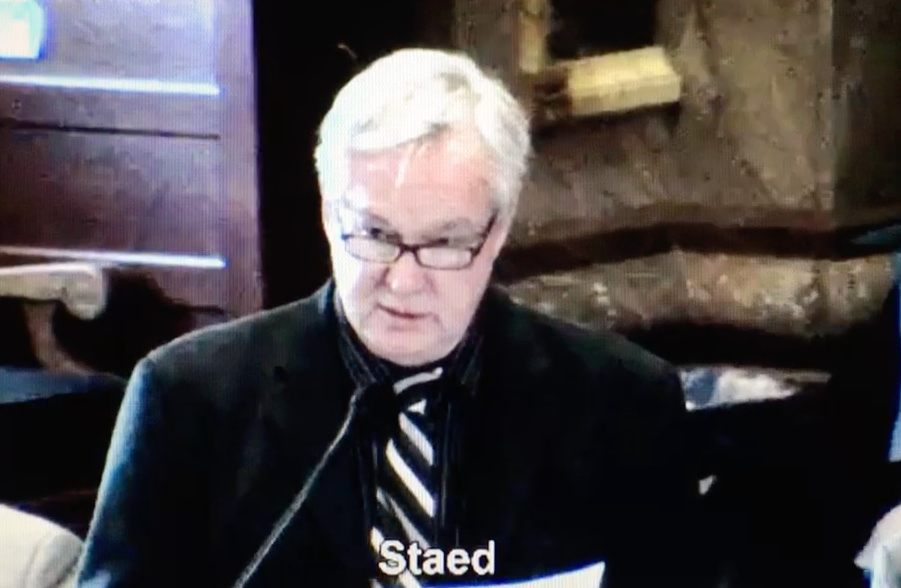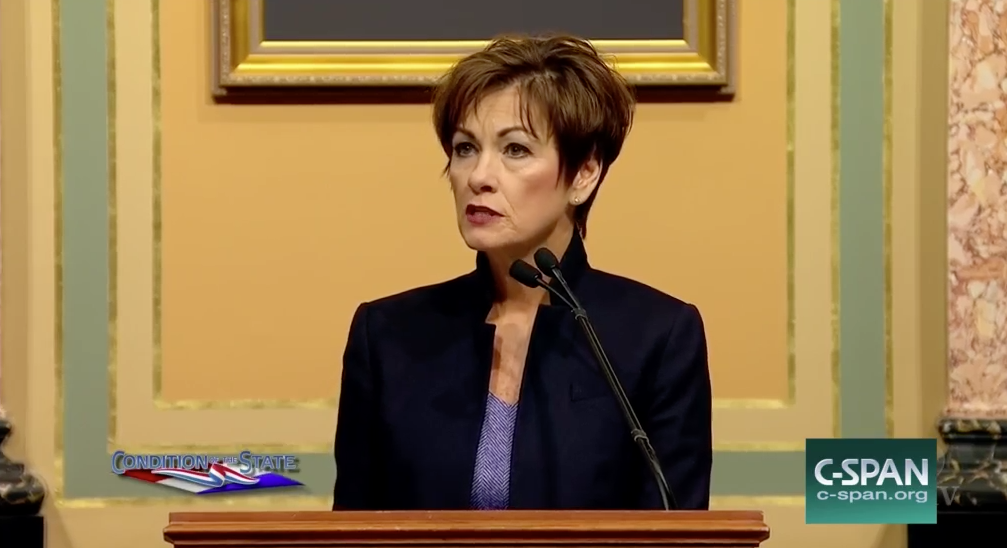The Iowa House opened its 2020 session on January 13 with 53 Republicans and 47 Democrats, a change from last year’s 54-46 split due to State Representative Andy McKean’s party switch shortly before lawmakers adjourned last year.
The House members include 67 men and 33 women (23 Democrats and ten Republicans). Although 34 women were elected to the chamber in 2018 (a record number), State Representative Lisa Heddens stepped down last summer, and Ross Wilburn won the special election to serve out her term in House district 46.
Five African Americans (Democrats Ako Abdul-Samad, Ruth Ann Gaines, Ras Smith, Phyllis Thede, and Wilburn) will serve in the legislature’s lower chamber; the other 95 lawmakers are white. No Latino has ever been elected to the Iowa House, and there has not been an Asian-American member since Swati Dandekar moved up to the state Senate following the 2008 election. Democratic State Representative Liz Bennett is the only out LGBTQ member of the lower chamber. To my knowledge, Abdul-Samad (who is Muslim) is the only lawmaker in either chamber to practice a religion other than Christianity.
After the jump I’ve posted details on the Iowa House majority and minority leadership teams, along with all chairs, vice chairs, and members of standing House committees. Where relevant, I’ve noted significant changes since last year.
Some non-political trivia: the Iowa House includes two Smiths (both Democrats), while the other 98 members have different surnames. As for popular first names, there are six Davids (four go by Dave), four Marys (one goes by Mary Ann), three Roberts (a Rob, a Bob, and a Bobby), three men named Thomas (two go by Tom), three Johns and two Jons, and three men each named Gary and Brian. There are also two Elizabeths (a Beth and a Liz) and two men each named Bruce, Chris, Jeff, Michael (one goes by Mike), Ross, and Charles (a Chuck and a Charlie).
Continue Reading...



